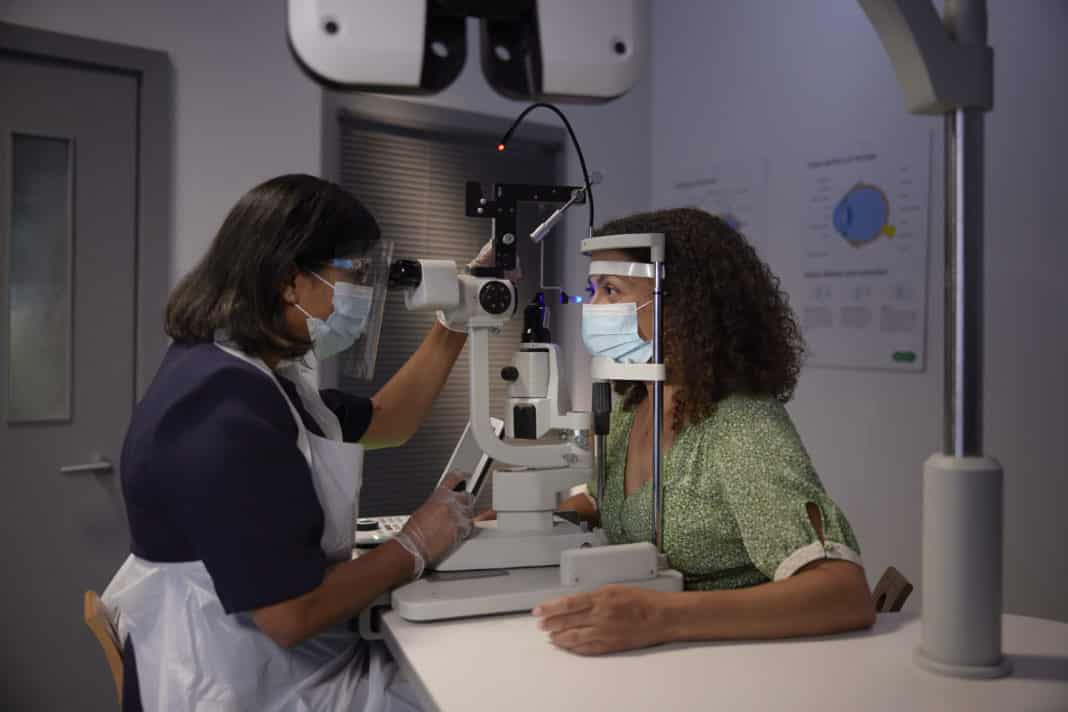Optometrists offer eye exams and prescribe and fit glasses and contact lenses. They are qualified professionals who take care of their patients’ eyes and monitor and manage eye conditions related to diseases like diabetes, and common conditions such as glaucoma.
Eye tests are not simply performed to see whether or not we need glasses, but also to check the health of the eye and our eyes can also give us indications of wider health concerns. This is why the skills and experience of optometrists are so vital to protect sight and identify early signs of health conditions.
When it comes to safeguarding your vision and ensuring your eyes are in good health, don’t hesitate to click for optometry services at The Eye Pros in Nampa.
For World Optometry Day on March 23rd, Specsavers Ópticas are also celebrating their optometrists and showcasing their skills, as well as sharing information about the symptoms we can spot and the health conditions that can be picked up during an eye test.
Nino Lamm is an Optometrist at Specsavers Ópticas in Calpe and is originally from The Netherlands. He studied to be an optometrist at Valencia University, going on to secure a Masters in Optometry and has been working in the optical field since 2019. He speaks Dutch, English, Spanish and Valencian and is happy to be able to help customers in their own language.
Nino comments, “Optometry is a great profession because we can help people in so many ways, I really enjoy being able to spot and explain health issues and deal with refraction needs. I’m proud of the complete eye test we are able to give and the time we have to advise customers.”
Nino adds, “I’m delighted that World Optometry Day is shining a light on this undervalued profession. On this important day I’d like to advise people to ensure they have a complete eye test every two years, even if you don’t feel like you have any issues, and more frequently if you have conditions or family history which require it.

Many of the most routine causes of blindness can be avoided with routine tests. Don’t be afraid to ask us for help, or clarification if you have any doubts or worries about your eyes, that’s what Optometrists are here for!”
Here are some of the issues which can be spotted during a routine eye test.
Glaucoma
‘Glaucoma is often symptomless as it develops so gradually. That’s why it is often referred to as the silent thief of sight,’ says Nino. ‘It is one of the leading causes of blindness, however, if it is identified in its early stages, it can be successfully managed. Regular eye examinations are key to detecting it – and are so important to those at greater risk of the condition due to their older age or family history.’
Diabetic retinopathy
‘In its early stages diabetic retinopathy usually doesn’t pose any noticeable symptoms, so an eye test can pick it up before you do,’ Nino says. ‘As the condition affects small blood vessels in the eye, damaging the retina, your optometrist can look for early characteristic changes, such as tiny leaks from these damaged vessels.’
High blood pressure
‘During an eye test, your optometrist might spot signs of high blood pressure, through observing the eye’s blood vessels to see if they have narrowed or started leaking. Patients with high blood pressure can develop a condition called hypertensive retinopathy which sees the walls of blood vessels thicken, narrow and restrict blood flow. In some cases the retina also becomes swollen and the blood vessels can leak.’
Potential retinal detachment
‘Floaters appear as black or translucent spots or strands, which give the impression of seeing something ‘float’ across your field of vision,’ says Nino. ‘Most are very small and move out of your vision very quickly, and it’s likely that you will see more floaters in your vision as you get older, and if you are short-sighted.
‘In rare occasions, new floaters can sometimes be an indication of retinal detachment, a potentially serious condition. This can be treated with early detection, so it is important to contact your optometrist immediately if you notice new floaters, flashing lights, or both.’
Arthritis
‘As well as causing inflammation of the joints, some autoimmune diseases, such as rheumatoid arthritis, can also cause inflammation in the eyes,’ Nino says. ‘This inflammation usually leads to dry eye but occasionally it can cause more serious conditions like inflammation of the iris.’
Tumours
‘While an eye test can look for any cancers of the eye such as melanomas, it will sometimes reveal signs of possible brain tumours,’ Nino says. ‘Swelling in the optic nerves can be visible during an eye test and can sometimes indicate that a brain tumour is present.’
While these tell-tale signs can indeed reveal further health issues, it’s important to maintain regular eye appointments to diagnose and treat conditions as early as possible. Specsavers Ópticas recommends that you have an eye test as least every two years or more often if you think something is wrong. There are six stores on the Costa Blanca, in Javea, Calpe, Benidorm, Torrevieja, Guardamar and La Zenia. For more information or to book an appointment visit www.specsavers.es





